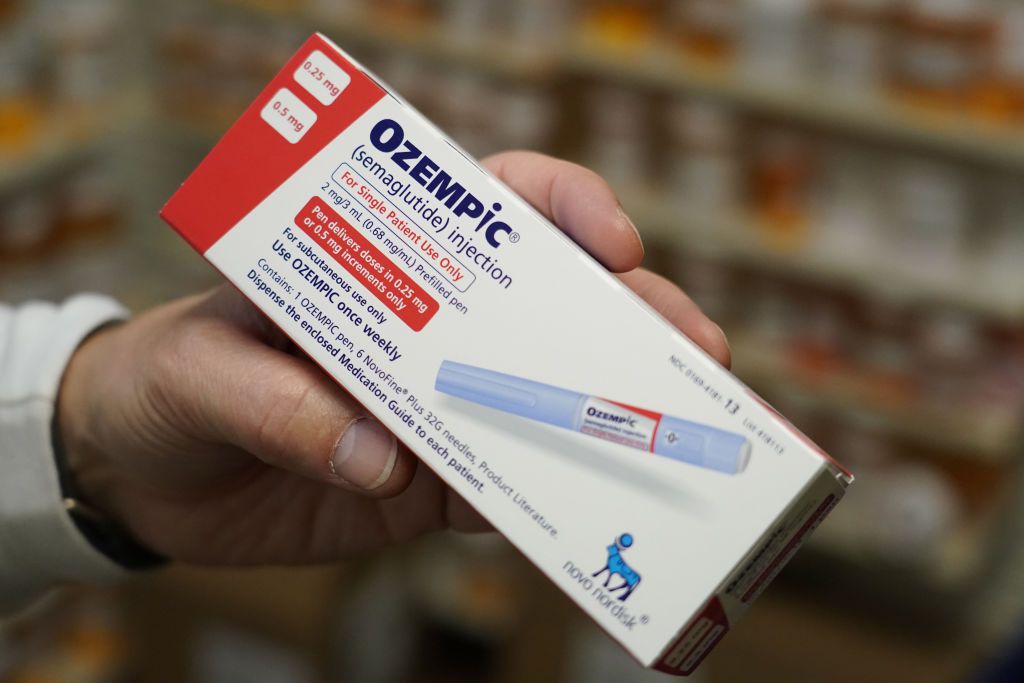Study Finds No Increased Risk of Suicidal Ideation with Ozempic and Wegovy

New research findings show no link between Ozempic, a type 2 diabetes and obesity medication, and an increase in suicidal thoughts.
These findings are particularly significant as semaglutide, the active ingredient in Ozempic and Wegovy, alongside other glucagon-like peptide 1 (GLP-1) agonist drugs, have been under scrutiny lately.
Last year, the European Medicines Agency (EMA) initiated a review of GLP-1 medications, following reports of suicidal ideation and self-harm by some users of these drugs.
In the United States, the Food and Drug Administration (FDA) is also assessing whether GLP-1 drugs require regulatory action due to reports of suicidal thoughts, hair loss, and aspiration.
Depression and suicidal ideation are listed as potential side effects for Wegovy; however, the same is not true for Ozempic.
Despite these concerns, the recent study, published in Nature Medicine, revealed that individuals using semaglutide had a lower risk of suicidal ideation compared to those on other drugs.
The authors of the study clarified that their results did not align with EMA's concerns regarding an increased suicidal risk linked to semaglutide.
Description aside, with the wide usage of drugs like Ozempic, Wegovy and other similar medications, research into potential side effects and the deeper mechanisms linking type 2 diabetes, obesity and mental health is essential.
This groundbreaking study provides a comparative analysis between semaglutide and a range of type 2 diabetes and obesity medications, highlighted Rekha Kumar, MD, MS, an associate professor of clinical medicine at Weill Cornell Medicine.
She believes that chronic conditions like obesity and diabetes may have a higher correlation with suicidal ideation than the GLP-1 class of drugs.
Enthused by the EMA's report, the researchers explored the potential link between suicidal ideation and GLP-1 drugs, shared Rong Xu, PhD, a study author and director of the Center for Artificial Intelligence in Drug Discovery at Case Western Reserve University.
According to Dr. Xu, evidence from substantial database can aid individuals in making informed decisions about the risks and benefits of these medications.
The researchers analyzed a large database of patient health records, comprising of 240,000 patients prescribed semaglutide or non-GLP-1 anti-obesity medication and over 1.5 million patients with type 2 diabetes prescribed semaglutide or a non-GLP-1 medication.
Within each group, they looked for participants with similar age, gender, race, socioeconomic status, and medical conditions, thereby ensuring a more balanced comparison.
The results showed that individuals on semaglutide had a significantly lower risk of suicidal thoughts compared to those on weight loss or anti-diabetes drugs," explained Dr. Xu. These results were consistent across ethnicity, age, and gender.
Interestingly, even for individuals with a history of suicidal ideation, semaglutide users were less likely to have recurring suicidal thoughts.
The connection between obesity and suicidal thoughts has been a focus of research for some time now. However, some weight loss medications were withdrawn from the U.S. market due to concerns of increased suicidal ideation, hence the additional scrutiny for GLP-1 medicines, added Kumar.
She thinks the reported suicidal ideation might be linked more to the conditions of obesity or type 2 diabetes, rather than the GLP-1 medications themselves.
“In this case, it’s not the GLP-1 effect, but rather the experience of living with a chronic disease that is more associated with suicidality versus the mechanism of the drug,” she said.
However, there’s still debate as to what the relationship between anti-obesity medications, obesity, and mental health looks like.
A 2022 study of young American adults found no association between obesity and suicidal ideation. In a 2023 article, those same researchers found that weight discrimination—often associated with obesity—is associated with suicidal ideation.
Though it seems to be less scrutinized, there is evidence that people with type 2 diabetes have a higher risk of depression and suicide.
More research is needed to fully explore how these chronic conditions may be deteriorating mental health, or if the medications for the conditions are contributing to mental decline.
As for why the study found that semaglutide was less likely to raise a person’s suicidal ideation risk as compared to other type 2 diabetes and obesity drugs, Xu said it’s unclear. Researchers speculated that it could have something to do with how semaglutide functions in the brain, though it’s an area for further study.
Due to the newness of semaglutide, more research is needed to understand how these drugs might affect suicidal ideation risk long-term, Xu said.
Xu explained that this research supports the idea that semaglutide may be a good option for people who experience suicidal ideation and need treatment for type 2 diabetes or obesity.
However, it’s too early to be making clinical recommendations, she clarified. Semaglutide may not work for everyone and has a host of separate side effects that could cause issues for certain people.
“Our data just provides another [source of] evidence so they can make informed decisions,” Xu said.
Ultimately, each person must talk to their doctor about the risks and benefits they might personally experience, rather than relying solely on data.
However, this research should be “reassurance” that in addition to being effective, semaglutide does seem to be safe, Kumar said.
People with mental health concerns shouldn’t necessarily avoid GLP-1 drugs if they could benefit from them. However, to take the medication safely, this group should keep their doctors informed of any issues so they can be properly monitored or referred to a mental health professional, said Kumar.




